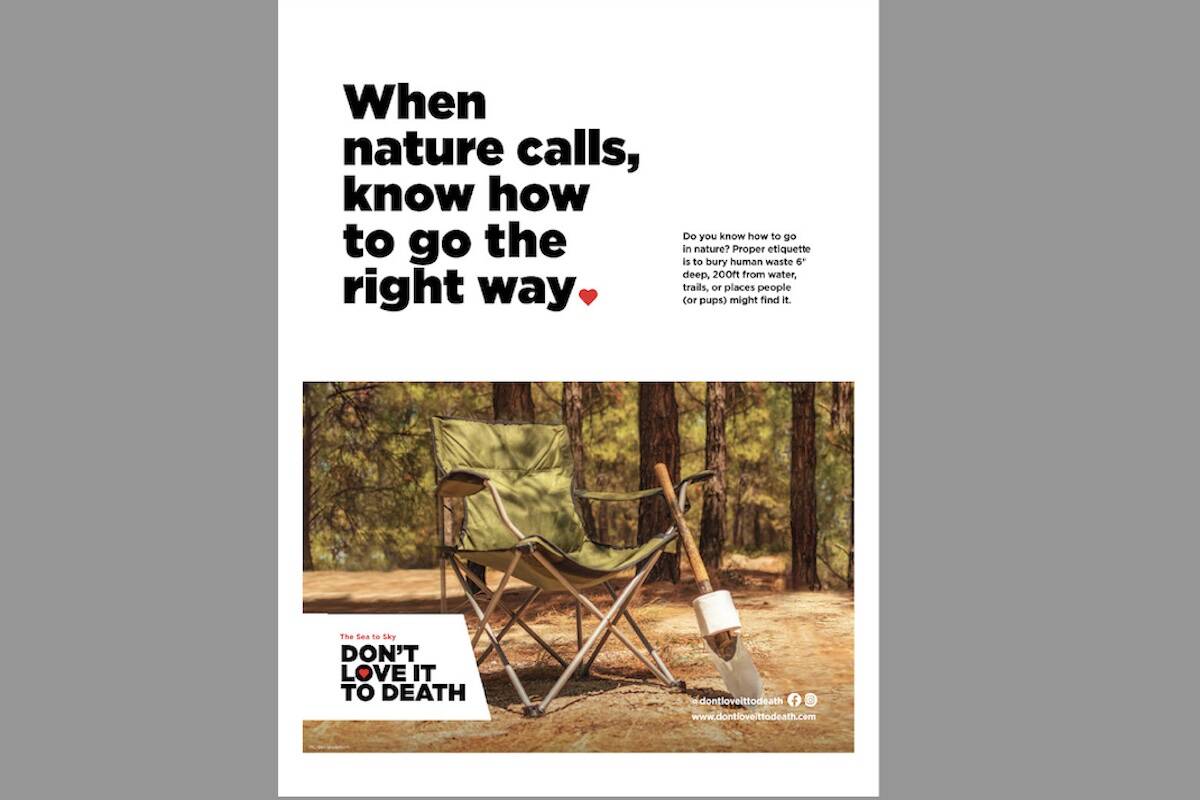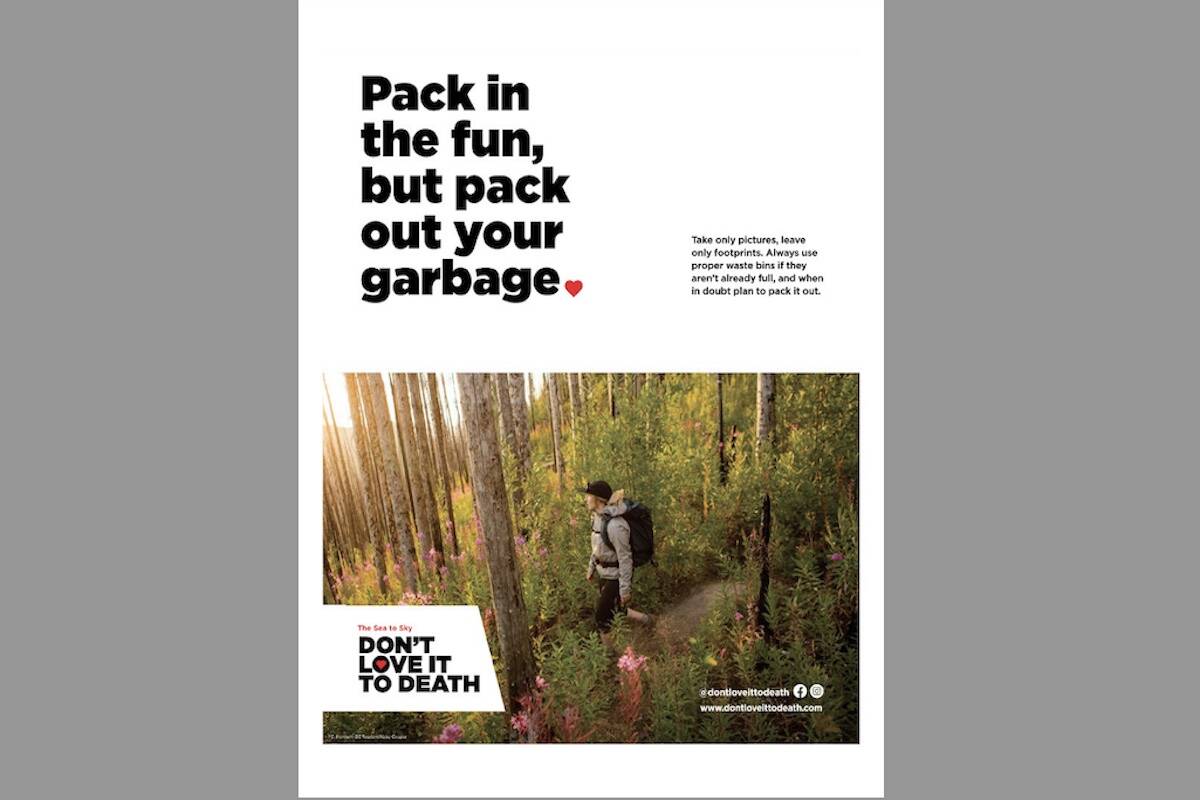Sea-to-Sky communities are urging B.C. residents to take care of the natural landscapes they love through a new “Don’t Love It to Death” campaign.
After observing an exponential increase in litter, wildlife conflicts and environmental degradation caused by human behaviour, and illegal land use throughout the Sea-to-Sky region, the Sea-to-Sky Destination Management Council is launching a marketing campaign advising residents and visitors to tread lightly and minimize their social and environmental impact.
Starting this month, those travelling the Sea-to-Sky Corridor, which spans from North Vancouver and Bowen Island north through Lillooet, will see signs in visitor centres, parks, trail-heads and beaches, reminding themto be aware of their impact.
“We all have a duty of care to protect our natural environment and cultural heritage for future generations,” said Tourism Squamish executive director Lesley Weeks in a media release. “Ultimately, we want to instill an ethic of accountability and respect among locals, outdoor enthusiasts and the travelling public so that everyone can enjoy the many opportunities this majestic region has to offer.”
The campaign, developed by Whistler marketing agency Origin, will include printed materials provided to local businesses, posters, videos, and a social media program, @dontloveittodeath. The campaign’s webpage includes practical resources on how people can reduce their footprint by enjoying the outdoors and community assets in a responsible, sustainable, and legal manner.
The Sea-to-Sky Corridor is feeling the pressure of sustained growth and a growing visitor presence. Traffic has increased five per cent every year since 2006.
Excessive litter topped the list of nine “pain points” identified by approximately 600 Sea-to-Sky community leaders and residents who responded to two surveys and participated in 12 stakeholder input sessions.
Additional concerns include human waste, trespassing and damage to Indigenous cultural sites, and a spike in search and rescue calls.
In March, Divers for Cleaner Lakes and Oceans removed 516 kilos of garbage off Bowen Island in just one day. North Shore Rescue received 226 calls for assistance in 2021, beating the previous annual record of 151 set in 2020. Bear-related incidents have also increased due to attempts to access food at recreation sites.
Mary-Ann Booth, mayor of West Vancouver said it is the proximity to the natural beauty of this area that makes the Sea-to-Sky corridor region such an amazing place to live and visit and users have to play their part in maintaining it.
“It can be as simple as taking your refuse with you when you see garbage receptacles overflowing, so it doesn’t attract wildlife and condition them to enter the area,” she said. “Reflecting on the Indigenous values and teachings of living with a ‘leave it better than you found it’ approach, we show our respect for the shared lands, the wildlife, and future generations.”
RELATED: Welcome to Vancouver Island: or not


